What is the role for Blacks in criminal justice?
By Ebony S. Muhammad -Contributing Writer- | Last updated: Jul 31, 2018 - 9:01:28 PMWhat's your opinion on this article?
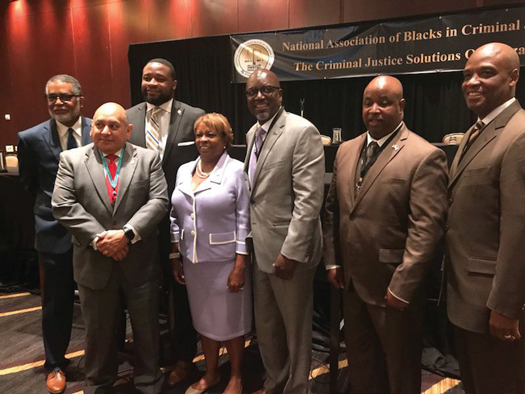
The National Association of Blacks in Criminal Justice convened in Houston, Texas July 15-19. Photos: Ebony S. Muhammad
|
HOUSTON—During the same month Eric Garner was killed by officers of the NYPD four years ago and in the same state Sandra Bland died while in police custody, the National Association of Blacks in Criminal Justice (NABCJ) hosted its 45th Annual Convention in Houston, Texas.
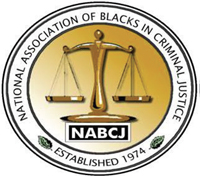
|
“I’m not going to be fearful of being progressive and a change maker against a justice system that keeps knocking us over,” said Congresswoman Sheila Jackson-Lee (D-Texas) during her keynote remarks in the opening session of the conference. Rep. Jackson-Lee spoke to those in attendance about having a sense of what their task in the field of criminal justice is today. She stressed the importance of being a change maker in today’s climate of injustice.
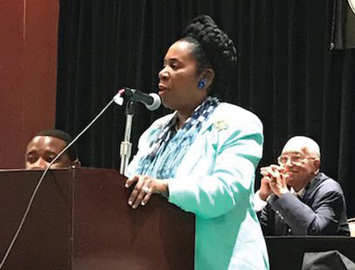
Rep. Sheila Jackson-Lee (D-Texas) addresses conference.
|
But what impactful roles can Blacks who work in various areas of criminal justice realistically play within a system that has shown a history of being unjust toward Black people? What is the role of Blacks in criminal justice?
The four-day gathering held July 15-19, began with an opening session introducing many key individuals in law enforcement both locally and nationally, including: Houston Police Chief Art Acevedo; Harris County Sheriff Ed Gonzalez; Houston City Councilwoman Martha C. Tatum on behalf of Mayor Sylvester Turner; NABCJ National President Terri McGee and Executive Director of the Texas Department of Criminal Justice Oscar Mendoza.
Attendees included individuals currently serving in law enforcement, attorneys, law students, representatives from the FBI, parole officers, directors of correctional facilities, probation officers and police officers.
“What I have in mind is that we have to meet the social justice challenges. We have to rebuild and restructure. We have to rise up, we have to speak out. We have to be the voice of reason,” NABCJ president McGee, told The Final Call. She is the first woman to hold the position in 16 years.
Dr. D. Z. Cofield, senior pastor of Good Hope Missionary Baptist Church and founder of Hope for Families, Inc. said some who work in the criminal justice system who represent the Black community have forgotten why they first got involved. He called for Black attorneys to fight for their clients especially if they are court appointed.
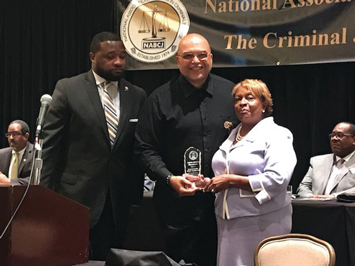
Left to right: Sherman Lea, Jr., national vice-president of NABCJ, Dr. D.Z. Cofield and Terri McGee, national president of NABCJ.
|
The Director’s Roundtable featured a discussion with various Black directors of correctional facilities in the U.S. Their topic for discussion was “Corrections in the Era of Millennials … What can or should corrections be doing that can cause a constructive difference in our country?” The discussion featured directors John F. Caraway, Gerald Garrett who served as the moderator, Harold Clarke, Kenneth Lassister and Oscar Mendoza. They acknowledged a generation gap that exists when it comes to staffing correctional facilities as well as legal professionals representing the Black and Brown community.
Although the title of the session revolved around the issue of millennials and there were plenty of this demographic represented in the audience, there were no millennials represented on the panel. The moderator opened by reading a long list of social and economic statistics regarding this unique generation and posed questions to the panel on the difference in communication styles and usage of smartphones among the millennial staff and the impact their presence is making within correctional facilities.
Once the moderator opened the floor to take questions from the audience, The Final Call asked about the lack of millennial representation on the panel. “We are here to share with you our perspective, our experiences and how we perceive the millennials in the workplace,” responded Mr. Clarke, director of the Virginia Department of Corrections.
The Final Call also inquired about the number of millennial staff that work in correctional facilities. Mr. Mendoza, deputy executive director of the Texas Department of Criminal Justice, responded by stating approximately 30 percent of his workforce within the agency is made up of millennials. It was also shared that 35 percent of those in the federal bureau are between the ages of 22 and 35.
Black folks, cops and mistrust
The history of mistrust many Black communities have toward police is nothing new. As it relates to the involvement of more Black police officers and building trust Dr. Everette B. Penn, co-founder of the Houston-based TAPS (Teen And Police Services) Academy, presented a workshop on community policing.
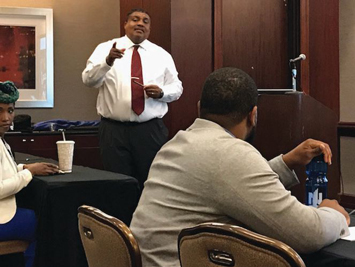
Dr. Everette B. Penn, co-founder of the Houston-based TAPS (Teen And Police Services) Academy, presented a workshop on community policing.
|
Officer Treva Mott of the Houston Police Department is part of the TAPS program and shared sincerity, compassion, and the desire to communicate with the community can increase a level of trust between the community toward police.
A female member of the audience who identified herself as a criminal justice professional made a comment regarding the lack of speed to indict police officers involved in shootings.
“I don’t want to paint all officers as bad, but it is unnerving to me that you as a professional who has dedicated your life to serving the community cannot receive the process you deserve, because we live in an environment when people won’t believe you,” the woman stated.
She posed a question to Off. Mott about the FOP (Fraternal Order of Police) and its influence on how rogue officers are dealt with.
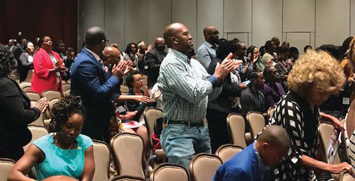
The conference drew Black professionals from around the country. Photos: Ebony S. Muhammad
|
She then used the example of a case between Columbus Police Off. Zachary Rosen who was involved in separate incidents. He shot and killed an unarmed young man by the name of Henry Green in July 2016. Off. Rosen was given desk duty, shortly after he was reinstated. “Two weeks after he gets his job back, there was a video of a young man who allegedly robbed a place. Another officer had him in handcuffs, faced down. You can see in the video Off. Rosen run into the picture, while this guy is laying down, and he kicks this dude in the head,” Dr. Jones shared about an April 2017 incident.
“The police chief recommends that Off. Rosen be suspended for 72 hours, but the Director of Public Safety recommends he be terminated. The FOP came back and entered into arbitration and Rosen keeps his job.”
Anthony Wilson, assistant chief of police in Westerville, Ohio, explained further, “I was able to take over the internal affairs office. We started weeding people out and we fired two people based on our investigation, which has never happened before,” he shared.
Chief Wilson shared some of his individual and personal experience regarding instances dealing in law enforcement.
“The city is basically in bed with the union (FOP), and I’ve been a little outspoken about the union and some of the things that they do,” he said. Chief Wilson stated that there is a tracking metric used to determine disciplinary actions when officers are reported that the chief of police is obligated to go by to determine whether an officer is suspended versus terminated.
If a chief decides to go against that, they stand to lose arbitration, which according to Mr. Wilson, “most police chiefs don’t want to lose arbitration.”
“It’s like the mafia. Dealing with the police department and the city is like dealing with the mafia. There’s so many layers and so many people.”
His solution to the FOP and their dealings is encouraging young law students to get into the arbitration part of criminal justice. “Most arbitrators side with the union (FOP). Not only do we want to have more diversity in the police department, but you also want to have more diversity in those areas as well.”
Dr. Penn closed his workshop with his vision on making TAPS Academy a nationally-recognized initiative. The Final Call asked what barriers he faced to make that a reality and making it mandatory for officers to participate. He deferred to assistant Police Chief Wilson to respond. “I have to have this program in our school district. Once I get the schools on board, it’ll happen,” said the assistant chief.
“I’m glad that we’re making these efforts, and I think they have to be sustained. But I question what’s the long-term effectiveness of these programs?” asked Dr. Kideste Yusef, who attended the session. Dr. Yusef is the department chair of Criminal Justice at Bethune-Cookman University. “I’m glad that I came to the session and that my students were able to attend, because it gives them ideas of where they want to go in law enforcement.”
NABCJ is a non-profit organization established in 1974 and consists of members who work in various areas of criminal justice.
INSIDE STORIES AND REVIEWS
-
-
About Harriett ... and the Negro Hollywood Road Show
By Rabiah Muhammad, Guest Columnist » Full Story -
Skepticism greets Jay-Z, NFL talk of inspiring change
By Bryan 18X Crawford and Richard B. Muhammad The Final Call Newspaper @TheFinalCall » Full Story -
The painful problem of Black girls and suicide
By Charlene Muhammad -National Correspondent- » Full Story -
Exploitation of Innocence - Report: Perceptions, policies hurting Black girls
By Charlene Muhammad -National Correspondent- » Full Story -
Big Ballin: Big ideas fuel a father’s Big Baller Brand and brash business sense
By Bryan Crawford -Contributing Writer- » Full Story






 Click Here Stay Connected!
Click Here Stay Connected!








